Laws & enforcement in your community
Yes. When you make a report with one of our Animal Helpline operators, let them know that you would like to report anonymously and they will not take your personal information.
Your information could be released in the event of a court order, legal proceeding, another law enforcement agency investigation or if we ask you to provide a statement so that we can obtain a search warrant.
Providing us with your contact information allows our animal protection officers to contact you with additional questions, if necessary. If you wish to be contacted regarding the outcome of the investigation, we can only do so if we have your contact information, otherwise no follow-up information will be available to you at any time.
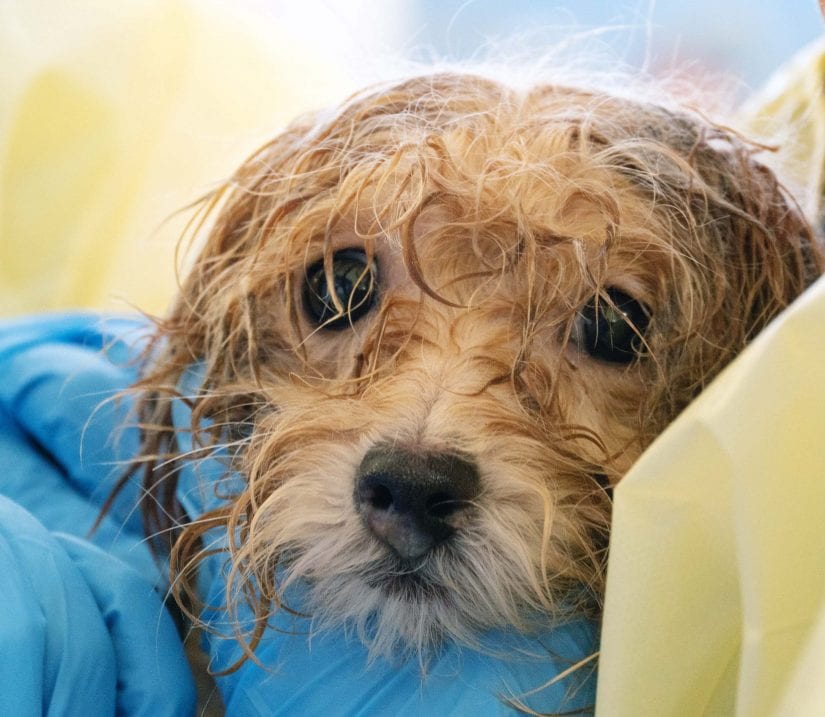
Investigating reports of animal cruelty and seizing animals in distress is both rewarding and challenging. It’s a job that requires a unique set of skills and the right personality type.
The best way to find out if it’s the right job for you is to start by working in a BC SPCA animal centre to gain experience shadowing Animal Protection Officers and participate in initial investigations.
Currently, we employ 33 Animal Protection Officers throughout the province. Should an opening become available, the job opportunity will be posted on our website.
To learn more, download a description of qualifications, experience and skills required to become a Animal Protection Officer (PDF) with the BC SPCA.
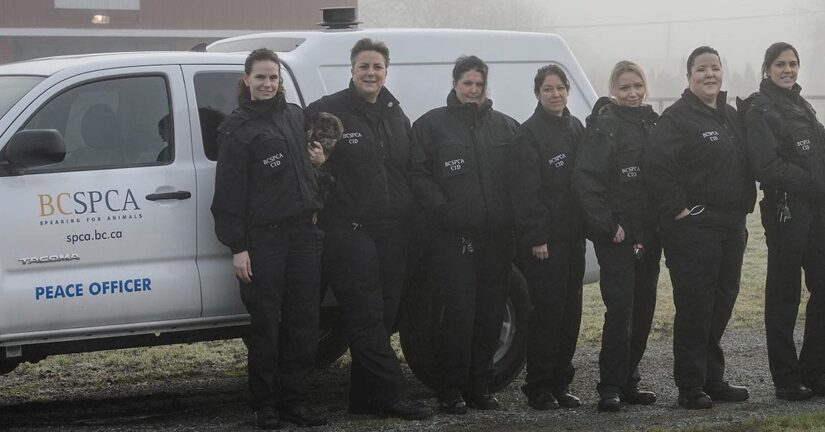
If you have evidence that leads you to believe your pet was stolen, contact the local police or RCMP non-emergency line. Permanent identification, such as tattoos or microchips, can help authorities track your animal.
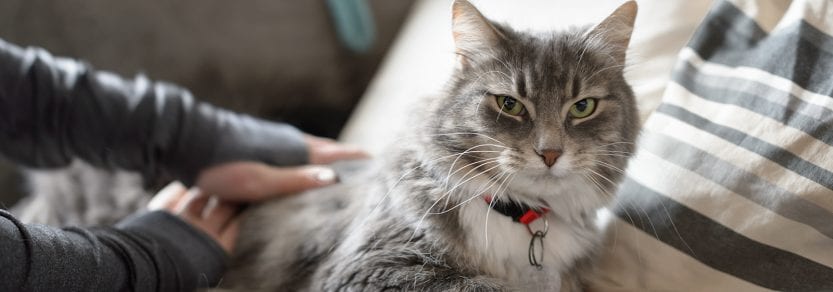
A ban (or prohibition) on owning animals is one of the most effective ways to prevent someone who has been convicted of animal cruelty from simply acquiring more animals.
Prohibitions are enforced in part through public reporting and in part through BC SPCA Animal Protection Officers monitoring. Given the media attention that often follows a person’s conviction of animal cruelty and ban on owning animals, we often find that neighbours or people living in the same community as the former animal owner are more than happy to report to us should this person obtain new animals. Our Animal Protection Officers also do random inspections when possible.
If you are aware of someone who has a ban and you know that they also own or care for an animal, please call the BC SPCA Animal Helpline: 1-855-622-7722.
Learn more about our cruelty investigations.
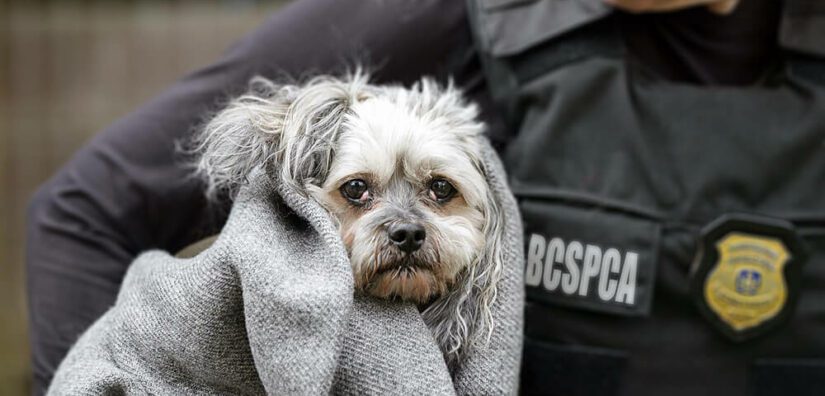
The BC SPCA derives its powers to investigate and take action in instances of animal cruelty from the Prevention of Cruelty to Animals Act (PCA Act).
We are the only animal welfare organization in BC that has the authority to enforce laws relating to animal cruelty. Our Animal Protection Team can also recommend charges under both the PCA Act as well as the Criminal Code of Canada to Crown Counsel for the prosecution of individuals who inflict suffering on animals.
In order for us to recommend charges to Crown Counsel, it must be in the public’s interest to prosecute, and there must be a substantial likelihood of conviction. Ultimately, it is Crown Counsel’s decision on whether or not charges are pursued.
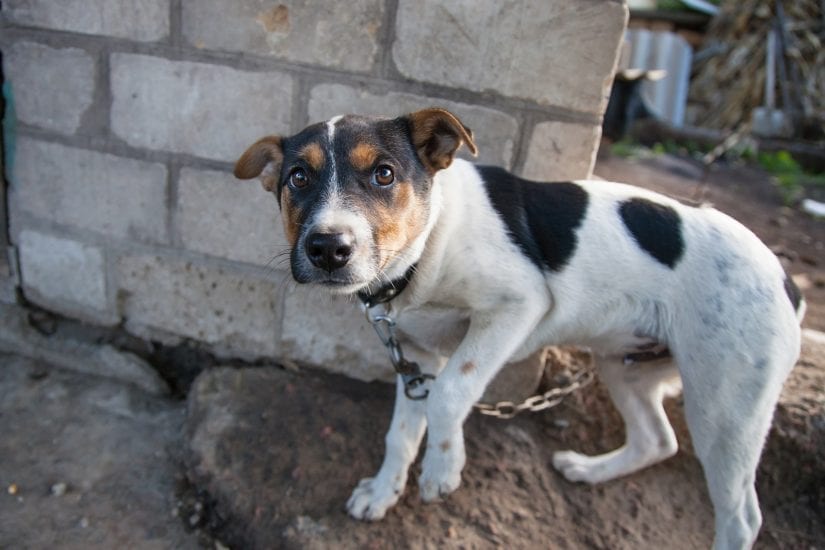
The BC SPCA is the only animal welfare organization that can investigate animal cruelty as established by the Prevention of Cruelty to Animals Act and the Constitution and Bylaws of the Society (PDF). We are guided by our Code of Ethics (PDF).
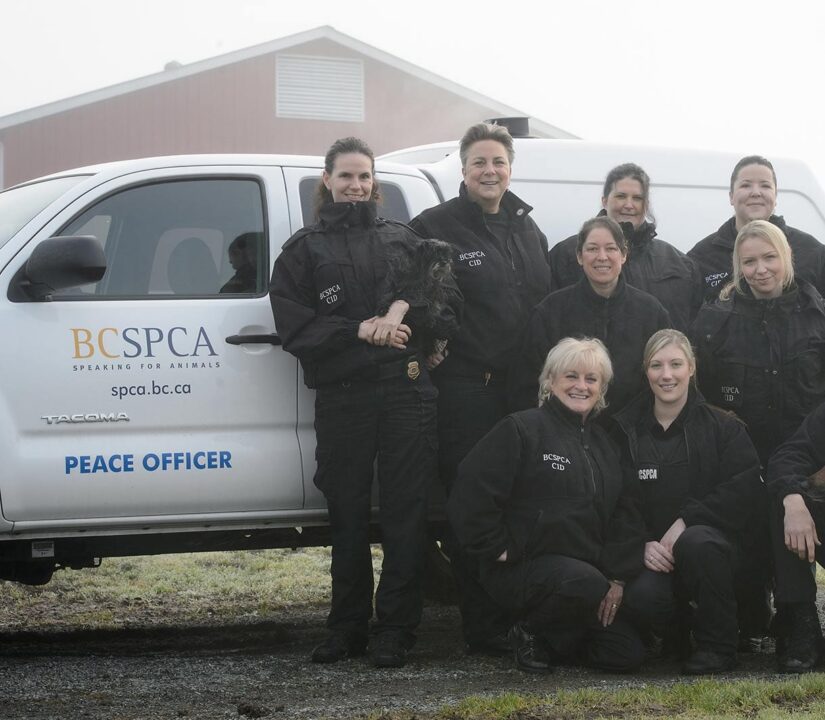
Animal Control agencies enforce city/municipal animal by-laws and, in some cities/municipalities, operate their own animal facilities. By-laws may include stray dogs, leash laws and licensing.
In some BC SPCA animal centres, we are contracted by the city/municipality to enforce the by-laws or kennel stray dogs and/or cats. Contact your local animal centre to determine what services we provide in your community.
Please call the BC SPCA Animal Helpline at 1-855-622-7722 to report animal cruelty.
The BC SPCA recognizes that pet-friendly housing is limited in B.C. To make it easier to work together to create humane communities, we have developed resources to help renters demonstrate themselves as responsible guardians and assist strata councils and property owners in effectively managing their buildings and suites.
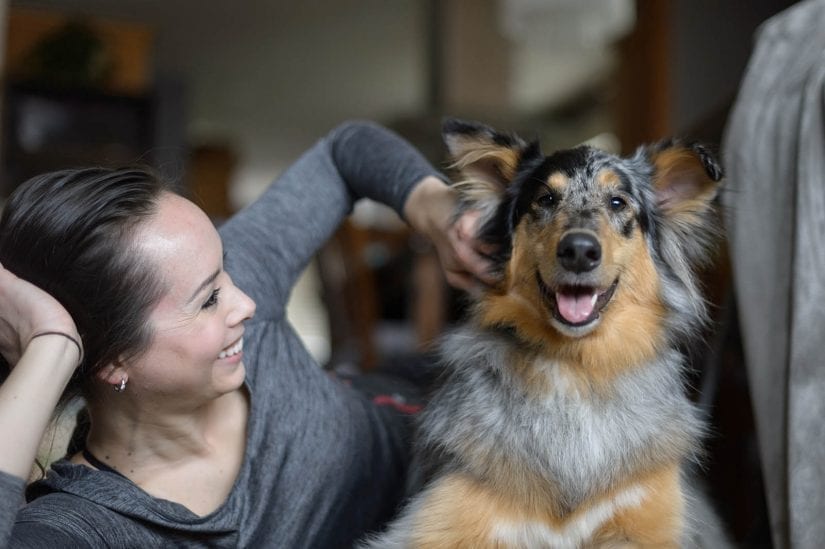
Learn more about finding pet-friendly housing for you and your pet.
Section 72 of the BC Motor Vehicle Act and Section 9.3 of the PCA Act prohibit the transport of an unsecured pet in the back of a pick-up truck. It is against the law and dangerous for a pet.
If you see a dog that is unattached in the back of a pick-up truck, call 911. Record the information about the vehicle so that you have it on hand for your call:
- Licence plate number
- Make and model of vehicle
- Description of dog
What is the best way to secure a pet in a vehicle?
Unrestrained pets are a major distraction to drivers and can cause vehicle collisions. In a crash, pets become flying objects and can cause serious injury to themselves and others.
- Put the dog inside the vehicle with you and use a secured crate or a dog seatbelt to restrain your pet.
- If you must transport your pet in the back of a truck, the safest method is in a secured crate in the centre of your truck box.
Find out more about transporting your pet safely.
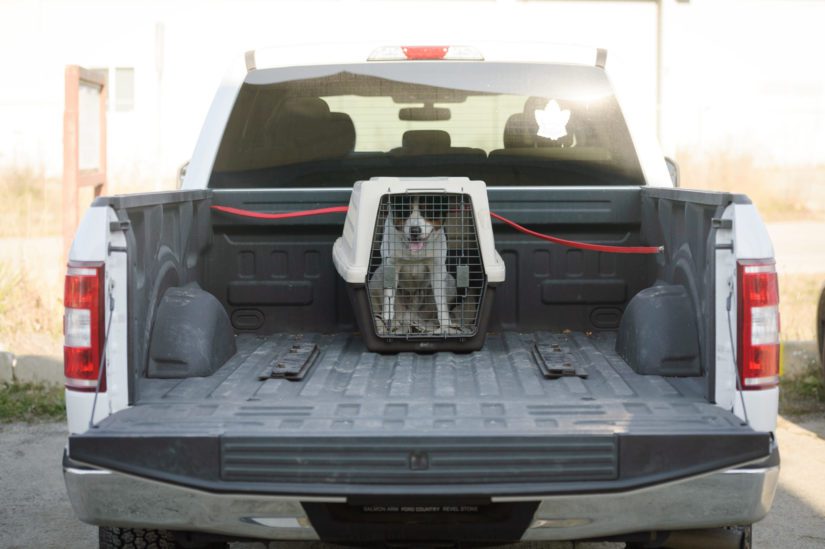
If the animals in question are not in distress or the owner has taken the necessary steps to relieve the distress, the BC SPCA has no lawful authority to remove the animals.
The animal protection officer may check back in with the owners to view the animals within a set time period, however our officers cannot continually monitor a particular animal (and owner) without reasonable grounds to do so. We rely on members of the public to be our eyes and ears and to report concerns to us if/when they observe any animals in distress.
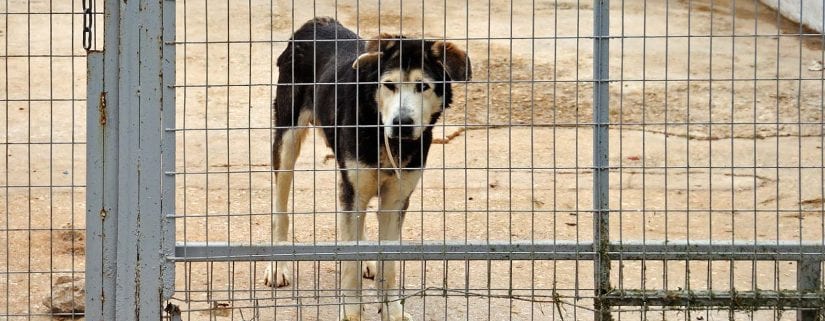
If you suspect an animal is in distress, call the BC SPCA Animal Helpline: 1-855-622-7722. A BC SPCA Animal Protection Officer will follow up on the complaint and have educational materials to help owners transition their dog inside. If the animal is found to be in distress, the Animal Protection Officer will issue notices to the owner.

Outdoor dogs and distress
When our Animal Protection Officers visit a property, they must determine if the animal is in distress.
The definition of distress is covered under the legislation that governs the BC SPCA, the Prevention of Cruelty to Animals Act (PCA Act):
- deprived of adequate food, water, shelter, ventilation, light, space, exercise or veterinary care
- kept in conditions that are unsanitary
- not protected from excessive heat or cold
- injured, sick, in pain or suffering, or
- abused or neglected
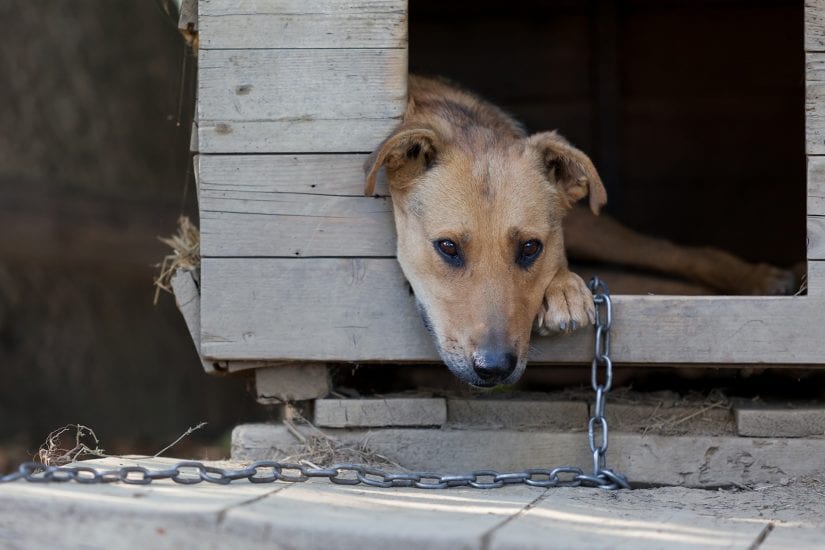
“Adequate” can be a subjective term. Officers use the following definitions to help clarify the term:
- Adequate water: Access to clean, potable drinking water at all times
- Adequate food: A sufficient quantity of suitable food to allow for normal growth and the maintenance of normal body weight and food receptacles that are clean, disinfected and located as to avoid contamination by excreta
- Adequate shelter: A properly constructed shelter that ensures protection from heat, cold and dampness, and is appropriate to the weight and protective outer coat of the animal.
Learn more about municipal bylaws for chained and outdoor animals in B.C.
Yes. The BC SPCA complies with the Personal Information Protection Act.
Your information could be released in the event of a court order, legal proceeding, another law enforcement agency investigation or if we ask you to provide a statement so that we can obtain a search warrant.
Providing us with your contact information allows our animal protection officers to contact you with additional questions, if necessary. If you wish to be contacted regarding the outcome of the investigation, we can only do so if we have your contact information, otherwise no follow-up information will be available to you at any time.
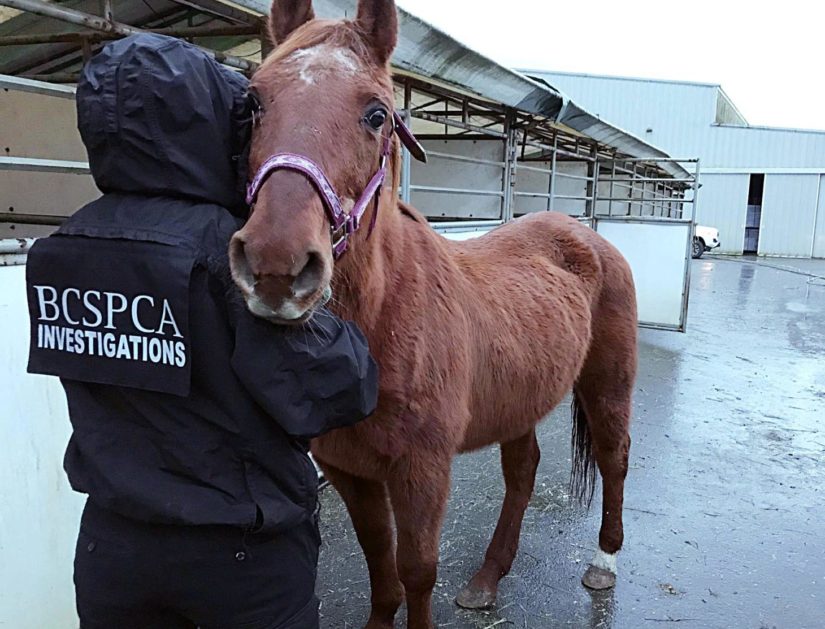
In 2016, the College of Veterinarians of British Columbia (CVBC) voted to prohibit their membership from cropping ears or docking tails of dogs for cosmetic purposes. A similar vote took place in 2023 to ban the practice of devocalization (“debarking”) in dogs.
- Ear cropping: the removal of part or all of a dog’s ear
- Tail docking: the removal of part or all of a dog’s tail
- Devocalization: the partial or full removal of a dog’s vocal cords to reduce or prevent the volume, pitch or intensity of their bark
In accordance with section 231 of the CVBC Ethics and Standards (PDF), these procedures may only be done to treat injury or disease. As such, if a veterinarian performed these procedures for reasons other than treatment, they would be in breach of their ethics and standards and also potentially in breach of the Criminal Code and Prevention of Cruelty to Animals Act (the “PCA Act”).
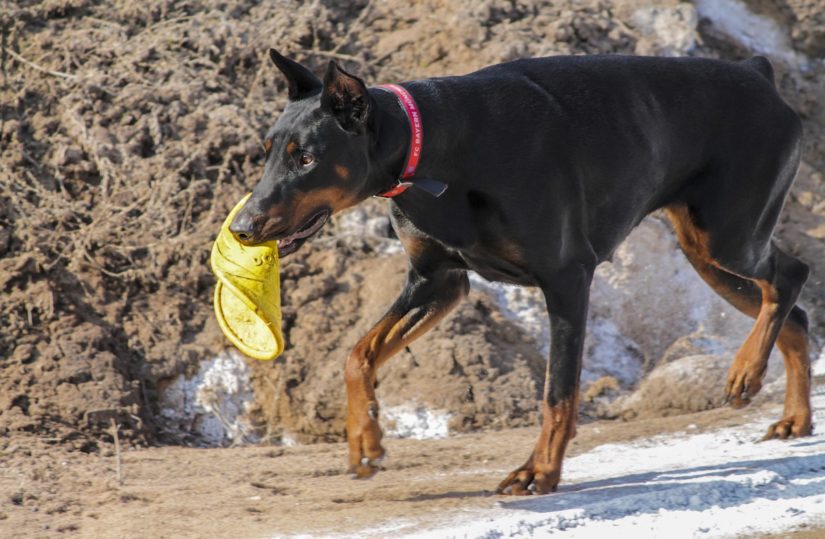
The BC SPCA’s position on these procedures
It is the position of the BC SPCA that unless medically required, the cosmetic docking of tails or cropping of ears without the use of anesthetics or analgesia causes pain and suffering as reported by both the CVBC and CVMA. We also believe that devocalization deprives dogs of an essential form of communication. Not only can this cause them significant stress, but devocalization fails to address the underlying reasons why dogs bark in the first place. Read more about our position on cosmetic and other non-therapeutic alterations.
Complaints about tail docking, ear cropping and devocalization may be investigated and, provided they meet the charge approval standard as set out by the Crown, recommendations for charges pursuant to either the Criminal Code of Canada or the provincial Prevention of Cruelty to Animals Act will be forwarded to Crown Counsel.
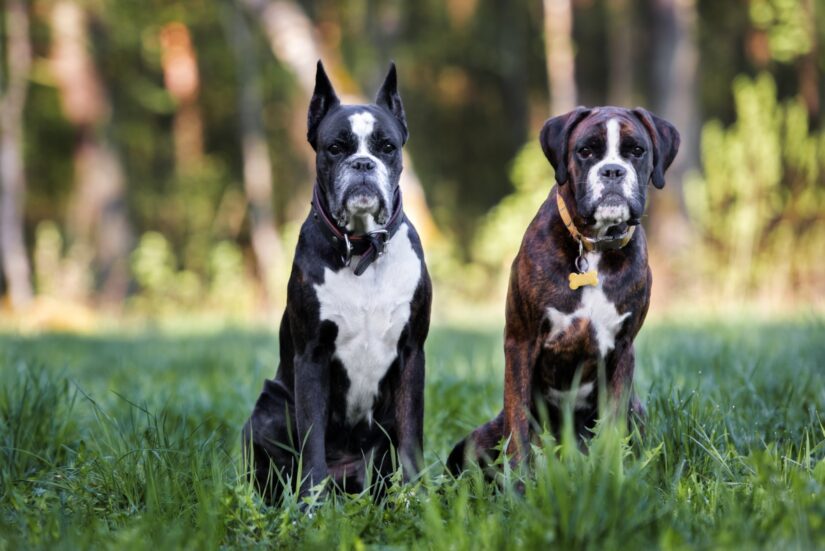
The impacts of these procedures on dogs
Tail docking, ear cropping and devocalization cause unnecessary pain and suffering to a dog when the procedures are not medically necessary to treat injury or disease.
Studies have demonstrated that dogs who have had their tails docked display signs of chronic pain and heightened pain sensitivity. Dogs who have been debarked are at risk of complications, including:
- Short-term: bleeding, swelling, infection, coughing and gagging
- Long-term: chronic coughing or gagging, aspiration pneumonia, and airway narrowing and scarring, which can lead to noisy breathing, respiratory distress, exercise intolerance, heat intolerance and collapse
Tails, ears and vocalizations also play a significant role in communication for canines, both with other dogs and to humans. Docked tails have been shown to result in more frequent aggressive encounters with other dogs. Tail and ear activity are closely linked with other dog behaviours and, together with vocalizations, allow dogs to signal both negative and positive emotions, moods and intentions.
We’re sorry to hear that you’re experiencing this. In most instances you would contact your city/municipality. Depending on where you live, your noise complaint may be taken care of by general by-laws or may fall specifically under the animal control by-laws.
The BC SPCA can’t stop a legally-permitted cull from happening in your community. However, the BC SPCA can intervene if the killing methods are inhumane (by law) or if animals are in distress. If you witness an animal in distress during a cull, call our Animal Helpline at 1-855-622-7722. Document evidence by taking videos or photos, but do not trespass on private property or put yourself in danger.
The BC SPCA is opposed to culling animals when there is no evidence to support it, or it can’t be done humanely. The BC SPCA’s primary approach to wildlife conflicts is coexistence, and changing human behaviour to prevent problems. International and BC SPCA experts agree there are many steps that must first be taken to justify ethical wildlife control.
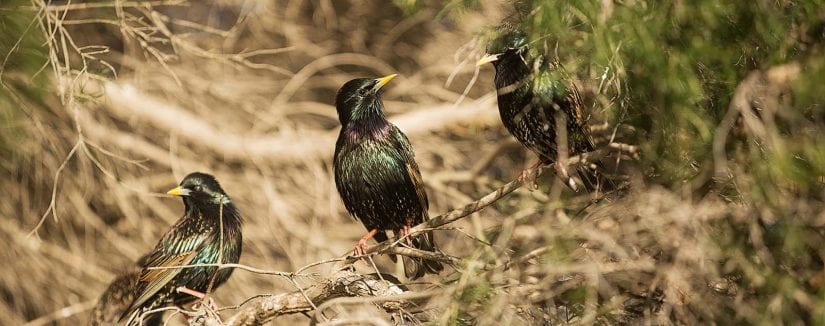
Deer culls
The BC SPCA recommends using non-lethal strategies to solve human-deer conflict. Communities should aim to prevent conflict by educating residents about coexisting with urban deer. Culling is an inefficient, short-term solution and should not be a default practice.
Read our position statement on urban deer.
Download our urban deer pamphlet (PDF).
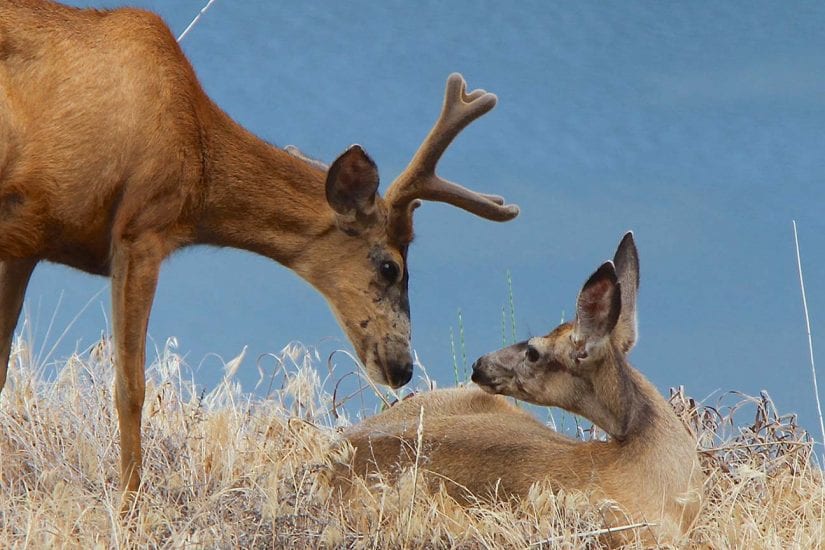
Geese and other bird culls
The BC SPCA recommends hazing and environmental modifications to prevent conflicts with birds, as well as providing education that discourages feeding by the public. When appropriate, fertility control is a non-lethal way to limit reproduction, though permits are generally required.
Read our best practice sheets for:

Wolf culls
Wolf culls in B.C. and Alberta have drawn significant criticism. Experts criticize the inhumane methods and lack of evidence that killing wolves will save caribou or other species. Culling can break up wolf pack structures and create an imbalance with other species in the area. Even with skilled shooters, shooting wolves from helicopters can cause stress and death may not be quick and painless.
Read our position statement on predator control.
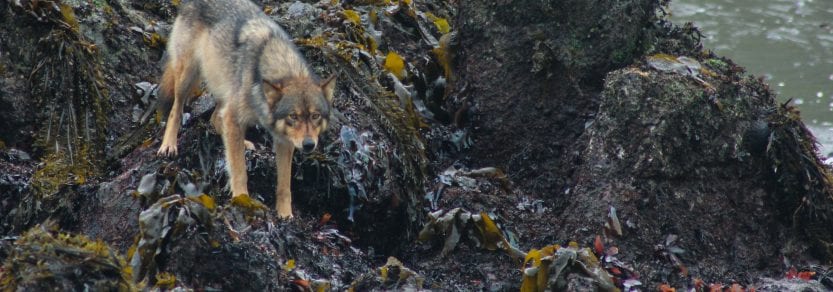
B.C.’s Prevention of Cruelty to Animals Act (PCA Act) outlines generally accepted practices of animal management as a reason by which distress is legally acceptable.
Generally accepted practices of animal management are ways of handling or caring for animals that are commonly used by those responsible for them. Sometimes these practices still cause pain, suffering and distress to animals. If the practices haven’t been written down in any official document, it is up to experts like veterinarians and leaders in the relevant industry (such as animal farming, sled dogs, animal breeding or horse racing) to give expert testimony in court when there is an animal neglect or cruelty case.
Animals are better represented when practices are written and agreed to by a committee of experts that includes animal welfare experts. We call these documents ‘standards’ or ‘Codes of Practice‘. In Canada, the National Farm Animal Care Council coordinates the development of the Codes of Practice for the care and handling of farm animals. The Codes of Practice are nationally developed guidelines that serve as our national understanding of animal care requirements and recommended practices.
In 2019, the Codes of Practice were included in provincial law – through the adoption of the Animal Care Codes of Practice Regulation under the PCA Act. This means that the Codes of Practice for some industries now serve as the minimum standard for what is considered to be a ‘reasonable and generally accepted practice’ of farmed animal care in B.C.
For example, science shows that castrating (neutering) cattle is painful at any age. However, the Code of Practice only requires farmers to use pain control on animals over six months of age. Despite the fact that castrating without pain control causes pain and distress, farmers cannot be charged with animal cruelty for this distress because this is a ‘generally accepted practice’.
In order to better protect animals, it is important to continue to strengthen standards and Codes of Practice, so that generally accepted practices better align with science and societal values of how we should treat animals.
Read more about laws for farmed animals.
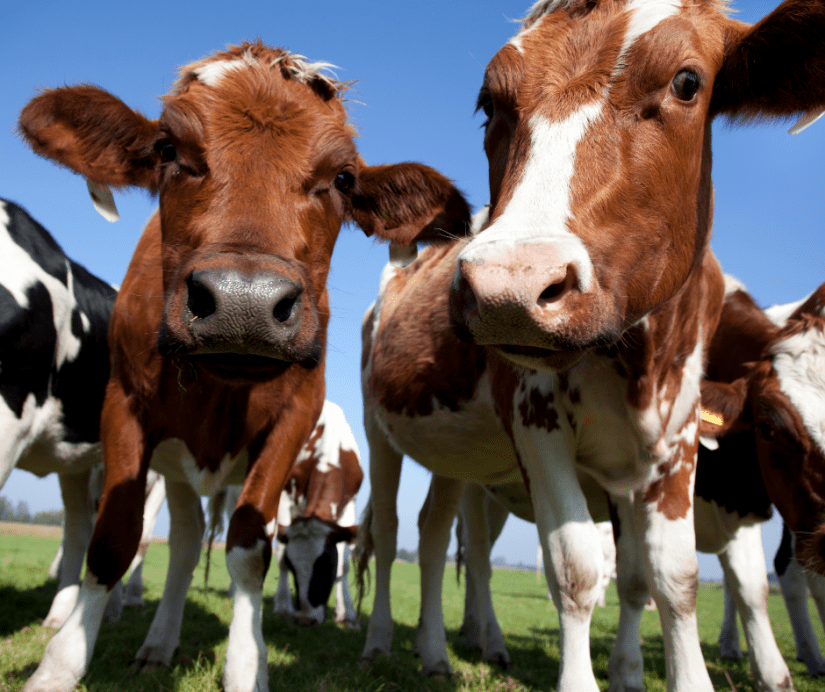
Step 1 – Gathering information
When the BC SPCA Animal Helpline (1-855-622-7722) receives a cruelty complaint, an Animal Helpline operator will gather information from the caller, including but not limited to:
- The caller’s name, phone number and address: While we do accept anonymous reports, contact information is very important in the event that the animal protection officer who investigates the complaint has any questions or difficulty locating the property. Also, if legal action is pursued, we may require a statement.
- The person of interest’s information: Address and name (if known) as well as physical description and whether the caller believes they might be violent.
- A detailed description of the animal(s) and the concerns. Also location of animals if different from the person of interest’s address.
- Date and time of the incident or when the animal was last observed.
All of these questions are necessary to ensure we provide the animal protection officers with as much information as possible to assist them in their investigation.
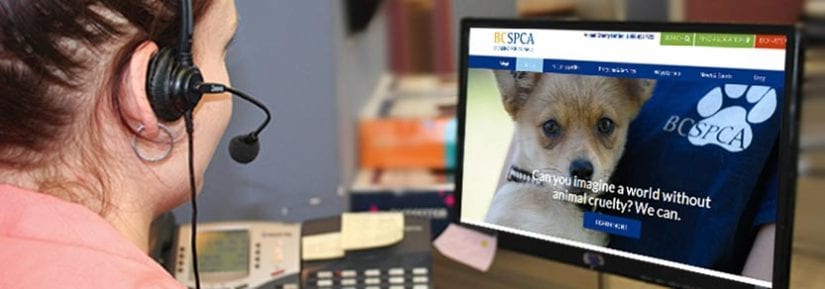
Step 2 – Investigating the complaint
An animal protection officer will review the complaint and attend the premises.
Our response time will depend on the number and priority of calls at the time, as well as the location of the animals reported. The officers will attend as soon as they are able, however it is important to remember that the BC SPCA is a non-profit organization with only 30 full time officers for the whole province.
If the animal protection officer attends and finds the complaint to be unfounded, we will close the file with no further action. If the complaint is valid and there are animals in distress, the officer must give the owner the opportunity to relieve the distress within a reasonable period of time. In doing so the officer would issue the owner with notice(s).
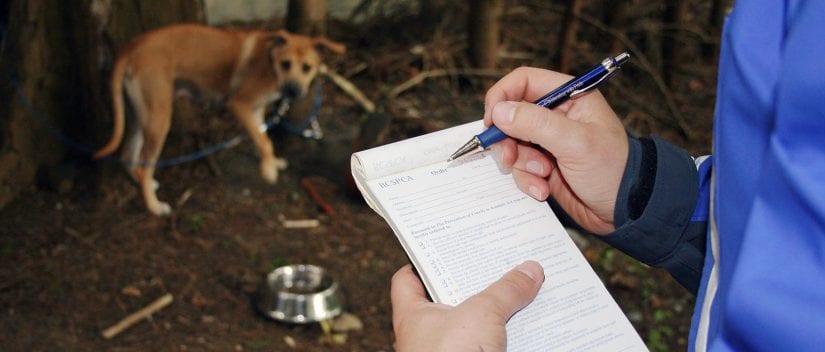
Step 3 – Resolving the issue
If the owner complies within the provided time period, we will close the file. If the owner does not comply within the time period, the animal protection officer may either issue new notices, provide additional time (depending on the circumstances) or apply for a warrant to seize the animal(s).
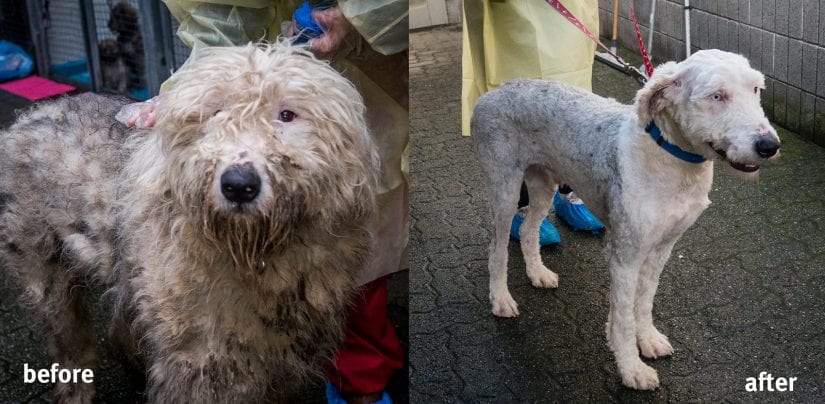
When the BC SPCA seizes an animal, the animal guardian is provided with a Notice of Disposition, which details the procedure for disputing the seizure. Anyone wishing to dispute a seizure must do so in writing within 14 days of receiving the Notice of Disposition. If the animal guardian does not dispute the seizure within 14 days, the BC SPCA will gain custody of the animal. However, the animal guardian will be responsible for the costs of care of the animal while in our care.
If the animal guardian disputes the seizure, the BC SPCA’s Chief Prevention and Enforcement Officer will review and consider the case, and will decide whether to return the animal (based on the animal’s best interests) under some type of care agreement.
If the decision is made to refuse to return the animal, the animal guardian has the right to appeal the decision to the BC Farm Industry Review Board.
The Prevention of Cruelty to Animals Act (PCA Act) is the provincial animal welfare legislation that outlines required standards of care. The BC SPCA was created under the auspices of the PCA Act, and that’s what gives it the power to investigate and take action on animal cruelty cases. It also details the BC SPCA’s constitution and powers of inspection and enforcement.
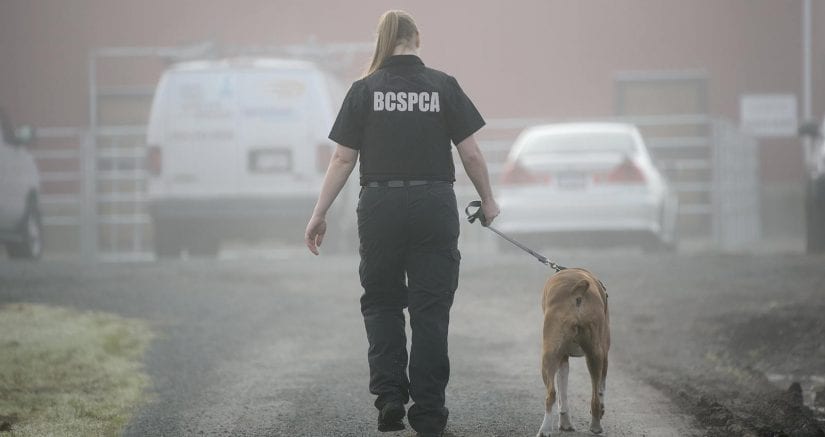
The BC SPCA is the only animal welfare organization in B.C. with the authority to enforce laws related to animal cruelty. In 2008, we successfully campaigned for amendments to the Act that significantly increased protection for abused and neglected animals in B.C.
We continue to propose and support amendments to strengthen the Act. For example, in July 2015, the B.C. Ministry of Agriculture announced a new regulation to adopt the Codes of Practice for the Care and Handling of Dairy Cattle into the PCA Act, specifically outlining what is considered a ‘generally accepted practice’. The inclusion of the Codes complemented our work with the BC Dairy Association, the BC Milk Marketing Board and the dairy industry to improve the welfare of dairy cattle.
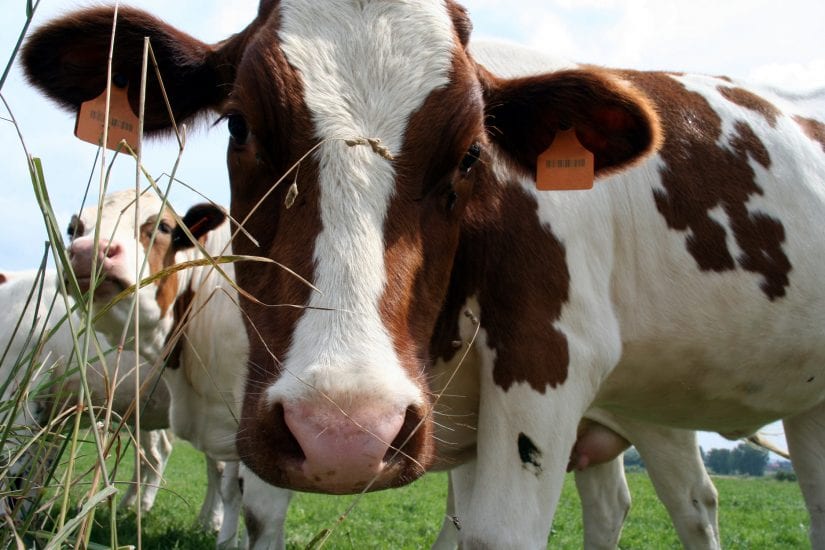
In February 2017, the BC SPCA applauded the government of B.C’s move to target irresponsible dog and cat breeders. The proposed amendments to the PCA Act would enable the B.C. government to regulate commercial breeders through either a registration or licensing system that will help ensure commercial cat and dog breeders are treating animals with the respect and care they deserve.
PCA Act
The BC SPCA derives its powers to investigate and take action in instances of animal cruelty from the Prevention of Cruelty to Animals Act (PCA Act).
We are the only animal welfare organization in B.C. with the authority to enforce laws relating to animal cruelty and to recommend charges to Crown Counsel for the prosecution of those who inflict suffering on animals.
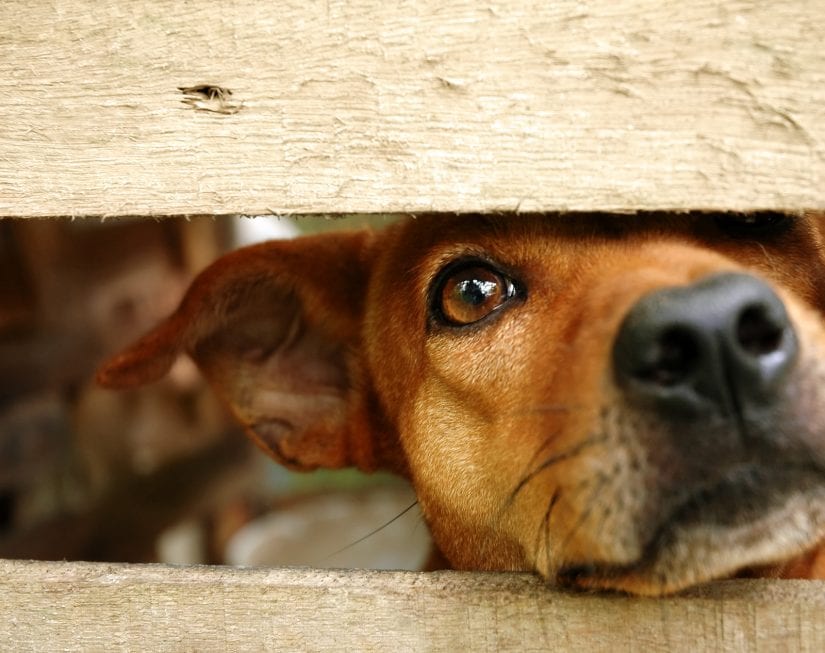
Criminal Code of Canada
It is a crime in Canada to intentionally harm animals. Anyone who deliberately harms animals can be charged under the Criminal Code of Canada.
The Criminal Code of Canada deals specifically with cruelty to animals in sections 444 to 447.
Our Animal Protection team can recommend charges for Crown Counsel for the prosecution of individuals who inflict suffering on animals under the Criminal Code of Canada.

The BC SPCA does not have the lawful authority to close facilities, businesses or operations. Our Animal Protection Officers must investigate in accordance with the PCA Act and follow procedures and protocols for investigation, which include working with the owners to relieve animals of any distress. If the owners are unable or unwilling to relieve distress, our Animal Protection Officers may apply for a warrant to seize the animals.
The BC SPCA is not able to provide details on active investigations into animal cruelty cases, as doing so may compromise any potential charges or other legal actions we may take.
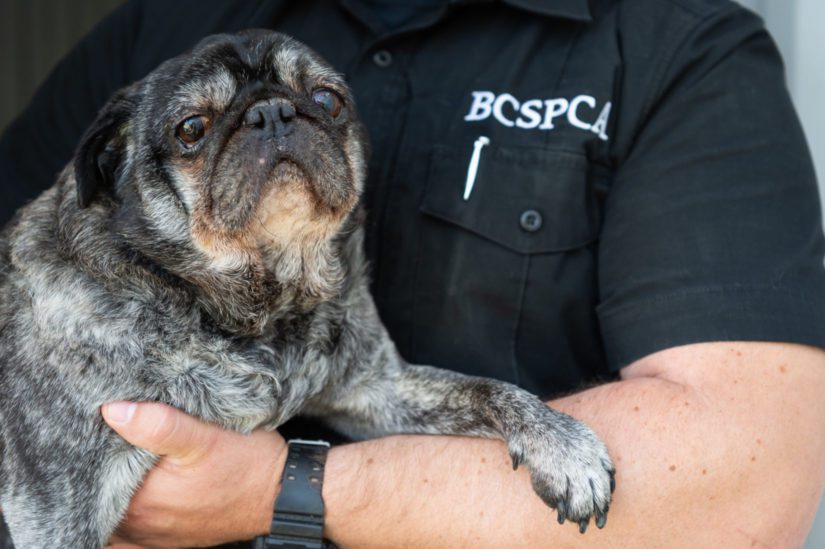
As BC SPCA Animal Protection Officers enforce the Prevention of Cruelty to Animals Act (PCA Act), they must act in accordance with the legislation. The PCA Act does not permit BC SPCA Animal Protection Officers to search for evidence or remove animals without a warrant.
Many investigations can be conducted without a search warrant. Upon respectful request, animal guardians will usually permit us to view their animals and, if the animals are in distress, guardians often comply with notices provided.
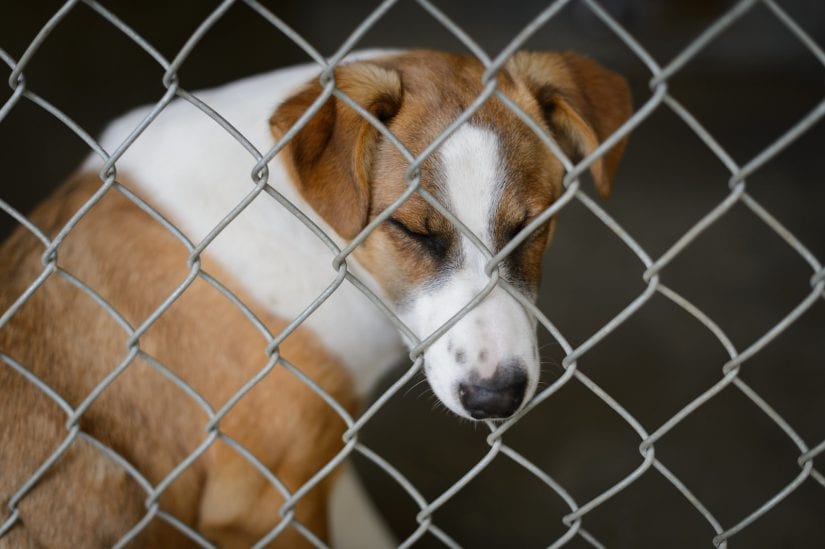
It is only when our Animal Protection Officers are denied access to the animals, or if the guardians are unable or unwilling to comply with notices and relieve the distress of the animals, that it is necessary to obtain a search warrant. In order for a warrant to be granted, there must be reasonable grounds to do so and there must be animals in distress or an offence committed against them.
The only time BC SPCA Animal Protection Officers may remove an animal without a warrant is when the animal is in critical distress and not located within a dwelling house.
PCA Act: Authority to enter without a warrant
14 (1) In this section, “critical distress” means distress in an animal of such a nature that
(a) immediate veterinary treatment cannot prolong the animal’s life,
(b) prolonging the animal’s life would result in the animal suffering unduly, or
(c) immediate veterinary intervention is necessary to prevent the imminent death of the animal.
(2) An authorized agent who believes on reasonable grounds that there is an animal in critical distress in any premises, other than a dwelling house, or in any vehicle, aircraft or vessel, may enter the premises, vehicle, aircraft or vessel without a warrant for the purpose of taking any action authorized by this Act to relieve that critical distress.
Further, the Canadian Charter of Rights and Freedoms states that everyone has the right to be secure against unreasonable search and seizure. If the BC SPCA performed an unreasonable search, it would have serious consequences for the outcome of the case, the animal(s) involved and the Animal Protection Officers performing the search.
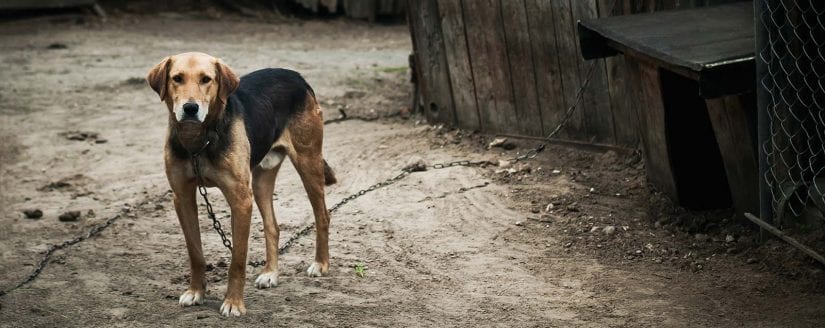
The BC SPCA has a legal obligation to provide animal guardians with “an opportunity to relieve the animal’s distress.”
The objective of every investigation is to relieve and prevent the distress of an animal through education, cooperation and, if necessary, prosecution under the law.
Initially, an investigator may issue notices to a guardian that he must seek medical attention for his animal. Notices can also apply to an animal’s environment, such as building a raised and insulated shelter.
The investigator will give the animal guardian a time-frame for compliance, and if he or she fails to comply with notices, the investigator can either issue further notices allowing the guardian more time, or apply for a search warrant to seize the animal.
Acting under the law, the BC SPCA is not empowered to remove animals from private property without a search warrant unless those animals would not survive without immediate medical intervention.
Animals may be lacking adequate food, shelter and veterinary care, or even be sick and in pain, but unless they are in immediate danger of dying they are not in critical distress under the law.

While the BC SPCA is the only animal welfare organization in BC that can recommend charges under both the Prevention of Cruelty to Animals Act (PCA Act) and the Criminal Code of Canada, it is up to Crown Counsel to prosecute and for the judge to determine sentencing upon conviction.

Penalties for individuals convicted under the PCA Act or Criminal Code are as follows:
- A person who commits an offence under the PCA Act is liable on conviction to a fine not exceeding $75,000 or to imprisonment for a term not exceeding two years, or to both.
- Under the Criminal Code, a person who commits an offence directly related to one of the sections on animals: is guilty of an indictable offence and liable to imprisonment for a term of not more than five years; or an offence punishable on summary conviction and liable to a fine not exceeding $10,000 or to imprisonment for a term of not more than 18 months or to both.

